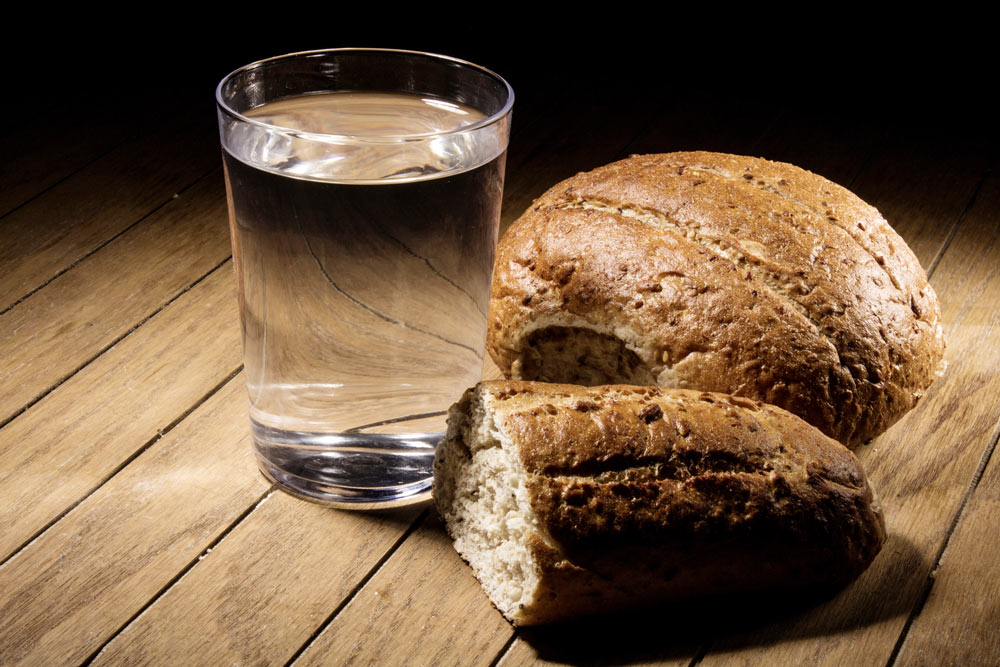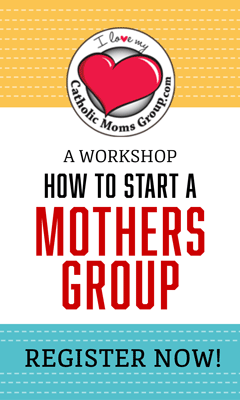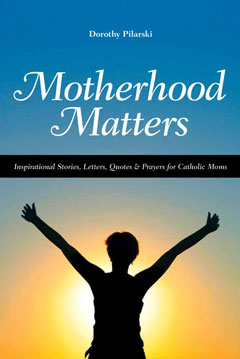
“Not all can accept this word,
but only those to whom that is granted.
Some are incapable of marriage because they were born so;
some, because they were made so by others;
some, because they have renounced marriage
for the sake of the Kingdom of heaven.
Whoever can accept this ought to accept it.” (Matt 19)
In this passage from the Gospel of St. Matthew, Jesus speaks about the importance and indissolubility of marriage and summarizes it by saying, “Whoever can accept this, ought to accept it.”
A good marriage takes a lot of work. It’s a massive responsibility. Marriage is meant to be forever so that the spouses can assist each other on the road to holiness and heaven.
There is a prophecy from Sr. Lucia of Fatima regarding “the final battle between the Lord and the kingdom of Satan. The battlefield is the family. Life and the family.”
One need only to look around at our world to see marriage and the family are under attack: same-sex marriage is now legal in most states and in Canada, living together before marriage is common and accepted as the norm, and contraception and abortion are now considered “acceptable.” Couples getting married today face a 50% divorce rate. Transgender kids as young as five and nasty custody battles are becoming more commonplace.
We are living the culmination of Sr. Lucia’s prophecy. And perhaps we feel helpless. Maybe we think there is nothing we can do.
However, there is something essential that we can do: fast.
St. John Paul II in Evangelium Vitae (1994) said, “Jesus himself has shown us by his own example that prayer and fasting are the first and most effective weapons against the forces of evil.” (P.101-102)
St. Theophan the Recluse said, “When there is no prayer and fasting, there are demons.”
Pope Emeritus Benedict XVI said, “In our own day, fasting seems to have lost something of its spiritual meaning, and has taken on, in a culture characterized by the search for material well-being, a therapeutic value for the care of one’s body. Fasting certainly brings benefits to physical well-being, but for believers, it is, in the first place, a “therapy” to heal all that prevents them from conformity to the will of God.”
Lent will soon be upon us, and it is the perfect time to begin a fasting routine. But fasting doesn’t need to be limited to Lent. Up until the 1960s, the Church recommended and encouraged fasting during the entire year. Fasting on bread and water two days a week (usually Wednesday and Friday) is a very powerful weapon in the fight against evil. If one is not able to do a bread and water fast, then fasting with less food and abstaining from meat, treats or coffee are also good ways to deny one’s self.
Benefits of fasting throughout the year:
- Fasting opens up our hearts to conversion
- Fasting gives weight to our prayer intentions
- Fasting strengthens us in resisting temptations
- Fasting and prayer promote peace in our hearts and peace with one another
- Fasting teaches us the difference between “wanting” and “needing”
- Fasting reminds us of the plight of the poor and for many in the world who are perpetually hungry
- Fasting and prayer can free us from addictive behavior
- “Fasting will lead us to a new freedom of heart and mind.” — Fr. Slavko Barbaric O.F.M
- Fasting invites the Holy Spirit in to heal our hearts, our relationship with God and our relationship with others
With all fasting, I strongly recommend consulting your physician— as everyone’s physical health is unique. And start slow: eat bread and water for one meal and work up to break and water for three meals.
Fasting is not easy. Fasting takes a lot of work. It takes self-control. But whoever can accept the challenge to fast should try it.
Our world needs fasting. In Scripture, (Mark 9:27-29) Jesus tells the apostles that said that some demons can only be expelled through prayer and fasting. This is the power of fasting, and this is what our world needs.
Evil exists in our world.
Join the movement. Try fasting.

Ellen Gable Hrkach is an award-winning author of twelve books and a contributor to numerous others. Ellen is also a self-publishing book consultant, editor, NFP teacher, Marriage Preparation instructor, and Theology of the Body teacher. She and her husband, James, are the parents of five adult sons ages 22 to 34, grandparents to two precious grandchildren, and live in Pakenham, Ontario. In her spare time, Ellen enjoys playing trivia games, genealogy, watching classic movies, and reading on her Kindle.



